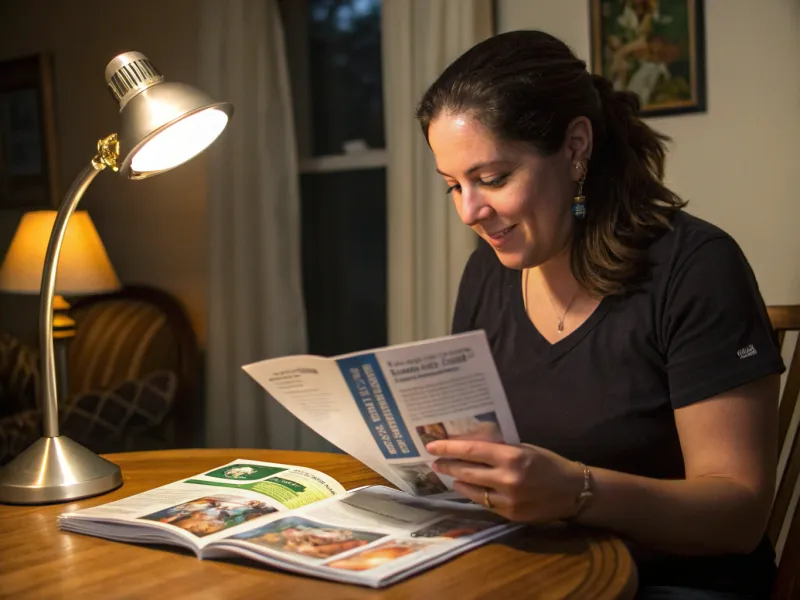32 Rules Husbands Should Never Force On Their Families
Some men call it “being the man of the house.” Others say they’re just “leading their family.” But what it often looks like is control dressed up as tradition—and that’s not love.
When a husband starts creating rules that limit freedom, silence emotion, or enforce double standards, it stops being a partnership and starts feeling like a power play.
Here are 30 rules no husband should ever impose on his wife or family—because love doesn’t need a rulebook to be respected.
1. My wife can’t go out without asking me first.

Starting with a basic freedom, the rule that a wife needs permission to step out is inherently controlling. It’s as if her autonomy is diminished, reduced to a child asking a parent for a playdate. This isn’t about concern; it’s about dominance. By expecting her to ask, it places the husband in the role of gatekeeper, a position that subtly undermines the partnership.
Imagine the frustration of needing to justify a desire to grab coffee with a friend or run errands alone. It cultivates an environment of tension and mistrust, where her independence is questioned. Instead of a relationship built on trust and mutual respect, it becomes a hierarchy.
Ultimately, this rule speaks volumes about the insecurities and power imbalances that need addressing. Communication, not control, should be the foundation of any relationship. Encouraging autonomy and trust can transform this dynamic, creating a healthier environment for both partners.
2. I don’t want her having guy friends.

The idea that a wife should refrain from having male friends is steeped in insecurity, not logic. It assumes that every interaction with the opposite sex is fraught with danger, disregarding the human capacity for platonic relationships. This rule not only isolates her but also speaks volumes about a husband’s lack of trust.
Friendships come in all shapes and sizes, providing support, different perspectives, and growth. By restricting her social circle based solely on gender, this rule stifles her personal growth and independence. It implies that her loyalty is in constant question, a burden on any relationship.
Rather than imposing bans, fostering open conversations about boundaries and trust is essential. Security in a relationship comes from understanding, not restrictions. Encouraging healthy, respectful friendships can strengthen the relationship, turning what was once a point of contention into a foundation of trust.
3. She needs to dress more modestly now that she’s married.

Clothing often becomes a battleground for control, with modesty being wielded like a weapon. The idea that marriage changes a woman’s right to self-expression is not just outdated, but damaging. Her wardrobe doesn’t suddenly become public property because she’s married.
This rule implies that her appearance is more about others’ perceptions than her own comfort and confidence. It’s a subtle but powerful assertion that a husband’s preferences should override her autonomy. This isn’t protection; it’s possession.
Encouraging expression through fashion can empower her, not diminish her value. Her choice in clothing should be hers alone, a reflection of her personality and comfort. Instead of dictating attire, fostering confidence and self-expression strengthens the partnership.
4. We don’t do therapy in this family.

The stigma around therapy is still prevalent, often branded as unnecessary or a sign of failure. Declaring therapy as off-limits closes the door on growth and understanding. It suggests that vulnerabilities are weaknesses, not opportunities for strengthening bonds.
Therapy isn’t about fixing a broken relationship; it’s about nurturing and understanding each other better. This rule prevents both partners from exploring their emotions and finding healthier ways to communicate.
Embracing therapy can bring about profound positive changes. It’s a space for open dialogue and healing, breaking the chains of silence that often bind families. Overcoming the fear of therapy opens new avenues for connection and understanding.
5. I make the money, so I make the decisions.

Financial control is one of the oldest forms of dominance in relationships. The belief that the breadwinner holds all the decision-making power is not just unfair but corrosive. It reduces the partnership to a transaction, where autonomy is traded for financial security.
This rule dismisses the non-monetary contributions a partner makes, undervaluing the emotional and logistical support essential in a household. It creates a dynamic where one person’s opinions and desires are systematically sidelined.
True partnership requires shared responsibility and respect, acknowledging all forms of contribution. Opening up financial discussions and decisions to both parties respects the partnership and fosters mutual growth. It’s about creating a balance where both partners feel valued and heard.
6. She doesn’t need to work—her place is at home.

The notion that a woman’s place is solely at home is a relic from the past, failing to recognize her right to pursue personal and professional ambitions. It disregards her ability to contribute beyond the domestic sphere, stifling her potential.
Every individual should have the freedom to choose their path, be it at home, in an office, or elsewhere. This rule is not about care; it’s about control, projecting traditional roles onto a modern landscape.
Encouraging career growth and supporting work-life balance strengthens relationships. It’s about respecting choices and enabling growth, not confining them to outdated roles. A true partner supports dreams and ambitions, fostering a nurturing environment for them to flourish.
7. My family comes first, no matter what.

Prioritizing one’s family of origin above all can create a delicate balancing act fraught with tension. Declaring ‘my family comes first’ suggests that one’s partner and their needs are secondary, breeding resentment and division.
This rule often places undue pressure and expectations, pulling a partner into a web of obligations and alliances that are not their own. It erodes the unity that should be foundational in a marriage.
Building a family together means blending backgrounds, respecting both partners’ histories and forging new traditions. It’s about creating a new family dynamic where both individuals feel valued and integral, rather than sidelined and secondary.
8. We don’t talk about our problems to outsiders.

The belief that problems should remain hidden behind closed doors can be toxic. Secrecy builds walls, preventing outside perspectives that could offer clarity and relief. It isolates individuals, fostering feelings of loneliness and helplessness.
Discussing issues with trusted friends or professionals can provide valuable insights and support. It helps in breaking the cycle of internalized stress and misunderstanding, offering a fresh viewpoint.
Transparency and openness are key in a relationship, creating space for healing and understanding. Rather than ignoring issues, addressing them with the help of outside perspectives can lead to growth and a stronger bond.
9. She should be grateful—other women have it worse.

Using others’ misfortunes as a yardstick for gratitude is manipulative. Declaring that she should be thankful because others have it worse is a way to dismiss her feelings and concerns. It’s a tactic that diminishes her experiences, forcing gratitude where empathy is needed.
Every individual’s struggles and triumphs are valid, deserving of recognition and respect. Comparing them to others only serves to invalidate genuine emotions and hinder honest communication.
Cultivating a space of understanding and support, where feelings are acknowledged rather than dismissed, enriches the relationship. Gratitude should be genuine, not coerced by comparison. It’s about fostering empathy and mutual respect.
10. I don’t want her posting certain photos online.

In the digital age, controlling someone’s social media presence is a modern form of restriction. Dictating what can and cannot be shared online is an attempt to control how a partner presents themselves to the world.
Social media is a platform for self-expression, connection, and creativity. Restricting its use is about control, not protection. It suggests that her judgment is flawed, needing oversight.
Trusting a partner to navigate their digital life responsibly is essential. Encouraging open discussions about boundaries and comfort levels can help in crafting a mutual understanding, rather than imposing unilateral rules.
11. I expect dinner ready when I get home.

Expecting a partner to have dinner ready is a throwback to outdated gender roles. It assumes that one’s schedule and preferences dictate household dynamics, reducing a partner to a service role.
Such expectations ignore the equality that modern partnerships are built upon. It fails to consider the partner’s day, their needs, and the possibility of shared responsibilities.
Creating a partnership means sharing duties and understanding each other’s contributions. It’s about collaboration and flexibility, ensuring both partners feel valued and respected, not burdened by archaic expectations.
12. I decide how we raise the kids.

Parenting is a team effort, not a solo endeavor. Declaring unilateral control over child-rearing decisions undermines the balance and shared responsibility crucial for a nurturing family environment.
This rule suggests that one parent’s views are superior and unchallengeable, disregarding the value of diverse perspectives and experiences in raising well-rounded children.
Effective parenting thrives on collaboration, openness, and mutual respect. By working together, parents can combine their strengths and insights, creating a supportive and enriching environment for their children.
13. We don’t need to celebrate her accomplishments—it’s not a big deal.

Dismissing a partner’s accomplishments as insignificant is demoralizing. Celebrating achievements, big or small, fosters self-esteem and acknowledges effort and success. Declaring such events as unworthy of celebration reflects a lack of support and recognition.
Achievements are stepping stones, deserving of acknowledgment and pride. They represent progress, dedication, and personal growth. Ignoring them undermines confidence and motivation.
Encouraging and celebrating each other’s successes strengthens the bond and cultivates an environment of positivity and encouragement. It’s about recognizing each other’s value and contributions, building a foundation of mutual support and pride.
14. I don’t want her making big purchases without asking.

Financial autonomy is fundamental in a partnership. Requiring permission for significant purchases implies a lack of trust and an imbalance of power. It suggests that one partner’s judgment is inherently superior, a sentiment that can foster resentment.
Open dialogue about finances is crucial. It’s about planning together, respecting each other’s decisions, and building trust. This approach encourages mutual financial responsibility and understanding.
Creating a partnership based on trust and shared goals, rather than control, fosters a healthier financial relationship. It’s about empowering each other, not restricting autonomy.
15. She needs to let go of her single friends.

The idea that marriage necessitates abandoning single friends is misguided. Friendships built over years provide support, joy, and perspective, forming an essential part of one’s identity.
This rule isolates a partner, forcing them into a narrow social sphere dictated by marital status. It’s a control tactic that disregards the importance of a diverse social network.
Maintaining friendships outside the marriage enriches the relationship, offering fresh perspectives and shared experiences. Encouraging a broad social circle supports personal growth and emotional well-being, strengthening the marital bond.
16. My wife doesn’t need to have alone time.

Alone time is crucial for personal reflection and growth. Denying a partner the space to be by themselves is a subtle form of control that suggests their needs are secondary.
Time alone fosters independence, creativity, and self-awareness, essential elements in a healthy relationship. It provides a much-needed break from daily pressures, offering clarity and rejuvenation.
Valuing each other’s personal time and space supports individual well-being, contributing to a more balanced and fulfilling partnership. It’s about nurturing personal growth, not enforcing constant togetherness.
17. I don’t want her traveling without me.

The notion that a partner shouldn’t travel alone is rooted in insecurity, not care. It suggests a lack of trust and an inability to see a partner as an independent individual capable of handling themselves.
Traveling alone is an empowering experience, offering new perspectives and self-discovery. Restricting this freedom limits personal growth and the opportunity to explore the world independently.
Supporting a partner’s desire to travel, alone or otherwise, demonstrates trust and respect. It acknowledges their independence and encourages experiences that enrich both personal and shared lives.
18. We don’t do divorce—no matter what.

The stigma against divorce can trap individuals in unhealthy relationships. Declaring it off-limits disregards the complexities of marriage and the reality that some unions aren’t meant to last.
This rule suppresses personal happiness and growth, forcing individuals to endure situations that may be harmful or unfulfilling. It prioritizes appearance over well-being.
Recognizing when to part ways is a difficult but sometimes necessary decision. It acknowledges the importance of personal happiness and the pursuit of a fulfilling life, free from societal constraints.
19. Her job is to make me feel respected.

Respect is mutual, not a one-way street. Expecting a partner’s role to revolve around feeding a partner’s ego is a recipe for imbalance and discontent.
This mindset treats respect as a commodity, something to be earned rather than shared. It ignores the need for reciprocal appreciation and understanding, core elements of a healthy relationship.
Cultivating a respectful relationship requires mutual effort and acknowledgment, not demands or expectations. It’s about valuing each other’s presence and contributions equally, fostering a nurturing and balanced partnership.
20. She should always back me up in front of others.

Blind allegiance in front of others places unnecessary pressure on a partner, compromising their authenticity. It implies that maintaining an image is more important than being genuine.
Disagreements should be addressed privately, allowing space for open dialogue and understanding. Publicly backing a partner without question can lead to unvoiced frustrations and resentment.
Encouraging honest communication and valuing each other’s perspectives fosters a healthier relationship. It’s about being supportive without sacrificing individuality or self-respect.
21. If she’s upset, it means she’s being emotional.

Labeling a partner’s emotions as simply ‘being emotional’ is a dismissive tactic that invalidates genuine feelings. It suggests that emotions are irrational and undeserving of attention or understanding.
Emotions are a vital part of human experience, signaling needs, desires, and boundaries. Ignoring them fosters misunderstanding and disconnect, eroding the foundation of a relationship.
Respecting and acknowledging each other’s emotional expressions is essential. It’s about listening, understanding, and responding with empathy, creating a supportive and connected partnership.
22. We don’t argue in this house—she just needs to agree.

The absence of arguments isn’t always a sign of harmony. Expecting agreement without discussion undermines a partner’s voice and creates a facade of peace.
Healthy disagreements are opportunities for growth and understanding. They allow partners to express differences, negotiate, and find common ground.
Encouraging open dialogue and respectful disagreements strengthens relationships. It’s about valuing each other’s viewpoints and fostering a genuine, supportive environment.
23. She doesn’t need a hobby that takes up too much time.

Hobbies are an essential outlet for creativity and relaxation. Restricting a partner’s hobbies due to time concerns is a subtle form of control, implying their personal interests are secondary.
Engaging in activities outside of relationship duties fosters personal growth and happiness. It offers a break from routine and a chance to explore passions and skills.
Supporting a partner’s hobbies enriches the relationship, offering shared joy and understanding. It’s about valuing personal fulfillment and encouraging a balanced, happy life.
24. What happens in this house stays in this house.

The rule of secrecy within a household is a barrier to seeking help and understanding. It isolates family members, trapping them in cycles of silence and unresolved issues.
Open communication with trusted individuals outside the family can provide support, insights, and relief. It breaks the isolation, offering new perspectives and solutions.
Encouraging transparency and open dialogue supports emotional well-being and strengthens family bonds. It’s about building trust and openness, not walls of silence.
25. She doesn’t need to go back to school.

Education is a lifelong journey, and discouraging a partner from pursuing further learning stifles their potential and growth. It suggests that their aspirations aren’t valid or supported.
Returning to school can open new opportunities, skills, and perspectives, enriching both personal and professional lives. It’s about ambition and the pursuit of dreams.
Supporting educational goals demonstrates respect and belief in a partner’s capabilities. It’s about fostering an environment where dreams can be pursued, unhindered by limitations.
26. She should always put me first—even before the kids.

Prioritizing a partner above all, including children, creates an impossible and unhealthy dynamic. It places a partner in a continuous struggle, trying to balance love and duty.
Family is about shared responsibilities and mutual care, not hierarchical demands. Children’s needs are paramount, requiring a nurturing and balanced approach.
Encouraging shared priorities and respect for each family member’s needs fosters harmony and understanding. It’s about equality, not competition for attention and affection.
27. I don’t want her seeing a therapist.

Seeking therapy is a personal decision that can lead to immense growth and healing. Forbidding this avenue of support implies that a partner’s mental health and well-being are secondary concerns.
Therapy offers tools for navigating life’s challenges and improving relationships. It’s about self-discovery and healing, not weakness.
Supporting a partner’s decision to seek therapy demonstrates care and understanding. It’s about fostering an environment where mental health is prioritized and respected.
28. She’s not allowed to question me in front of others.

Preventing a partner from questioning or disagreeing publicly is a control tactic that prioritizes appearance over authenticity. It places undue power in one partner’s hands, silencing the other.
Healthy relationships thrive on open dialogue and mutual respect, allowing space for differing opinions and discussions.
Encouraging equality and mutual respect, both in private and public settings, fosters understanding and genuine partnership. It’s about valuing each partner’s voice and perspective equally.
29. I don’t like her talking about money—it’s my job to handle it.

Finances should be a shared responsibility, not a sole dominion. Preventing a partner from discussing money sidelines their voice in crucial decisions that affect both parties.
Financial transparency and collaboration build trust and equality, ensuring both partners are informed and involved.
Creating a partnership based on mutual respect and shared goals in financial matters enriches the relationship. It’s about working together, valuing each partner’s insights and contributions.
30. If she really loved me, she wouldn’t need space.

Love and space aren’t mutually exclusive. The belief that love negates the need for personal time and space is misguided and counterproductive.
Space allows for personal reflection, growth, and rejuvenation, all of which contribute to a healthier relationship. It’s about balancing togetherness and individuality.
Valuing and respecting each other’s need for space strengthens the bond. It’s about understanding that love is not about possession but about nurturing and supporting each other’s individuality.
31. She can’t say no to family events

Obligations to attend every family event can become overwhelming. Picture a woman juggling her personal commitments with constant family gatherings. She’s expected to be present, smiling and social, even when she’s drained. This rule disregards personal boundaries and self-care.
Every individual needs downtime, time to recharge, and space to breathe. Forcing attendance without consideration can lead to resentment and burnout.
By allowing family members the choice to decline an event, husbands can promote autonomy and respect personal limits. This shift encourages a balance between family duties and personal well-being.
32. My wife and kids must follow traditional gender roles

Traditionally assigned roles can stifle personal growth. Imagine a father excitedly exploring his culinary skills, while his wife engages in car mechanics. This scenario breaks from conventional expectations, celebrating individual interests.
Imposing strict gender roles limits opportunities for learning and self-expression. Encouraging family members to pursue their passions, regardless of gender, fosters a more supportive and inclusive environment.
By promoting flexibility, husbands can help cultivate a family culture that values creativity, diversity, and mutual support, leading to a more harmonious household where everyone thrives.






